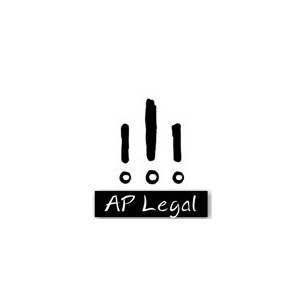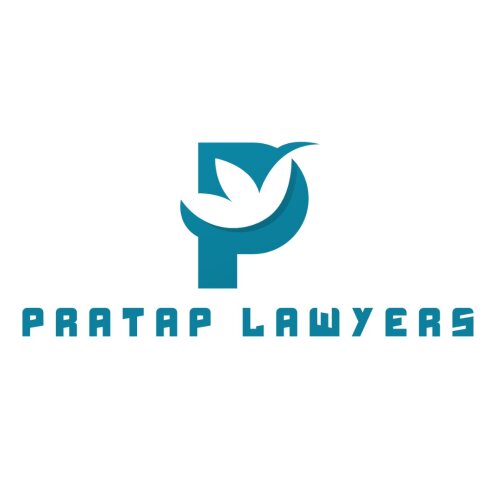Best Corporate Governance Lawyers in Fiji
Share your needs with us, get contacted by law firms.
Free. Takes 2 min.
Or refine your search by selecting a city:
List of the best lawyers in Fiji
About Corporate Governance Law in Fiji
Corporate governance in Fiji refers to the structures, processes, and practices by which companies and organizations are directed and controlled. It focuses on the relationships between a company's management, its board of directors, shareholders, and other stakeholders. Sound corporate governance ensures transparency, accountability, and ethical conduct, which are vital for fostering investor confidence, business sustainability, and compliance with local laws. Fiji's legal framework for corporate governance is shaped by statutes, regulations, and best practice guidelines aimed at promoting responsible management and fair business operations.
Why You May Need a Lawyer
Seeking legal advice on corporate governance in Fiji can be essential for several reasons. Common situations where professional legal help is recommended include:
- Establishing or registering a company and ensuring compliance with all relevant regulations
- Drafting, reviewing, or amending corporate governance policies, constitutions, or codes of conduct
- Resolving shareholder disputes or addressing conflicts of interest within the company
- Managing or responding to regulatory investigations or compliance audits
- Advising directors and officers on their rights, duties, and liabilities
- Ensuring appropriate transparency and disclosure practices for public or private companies
- Dealing with mergers, acquisitions, restructuring, or liquidation processes
A lawyer specialized in corporate governance can help you navigate complex local laws, protect your interests, and minimize legal risks.
Local Laws Overview
The key source of corporate governance law in Fiji is the Companies Act 2015, which replaced the older Companies Act. This modern law aligns with international standards and sets out clear rules regarding company formation, management, directors’ responsibilities, and disclosure requirements. Other relevant regulations include the Securities Industry Act, Financial Transactions Reporting Act, and, for listed companies, the South Pacific Stock Exchange (SPX) Corporate Governance Code.
Some of the key aspects to be aware of include:
- Directors have a legal duty to act in good faith, in the best interests of the company, and with reasonable care and diligence
- Companies must keep accurate records, hold regular meetings, and report certain information to the Registrar of Companies
- Shareholder rights are protected by law and include voting, inspection of records, and the right to dividends
- Disclosure and transparency are enforced, especially for public companies and those seeking investment
- Penalties for breaches can include fines, disqualification of directors, or even criminal liability for fraudulent or reckless behavior
It is important for companies operating in Fiji to understand these legal requirements in order to maintain compliance and good corporate reputation.
Frequently Asked Questions
What is corporate governance and why does it matter in Fiji?
Corporate governance defines the systems through which companies are managed and governed. In Fiji, good corporate governance builds trust among investors, protects shareholders' rights, and helps prevent mismanagement and fraud.
Who enforces corporate governance laws in Fiji?
The Office of the Registrar of Companies is responsible for company regulation, enforcement, and compliance. Other bodies such as the Reserve Bank of Fiji and the South Pacific Stock Exchange also play roles for specific entities.
What duties do directors have under the Companies Act 2015?
Directors must act honestly, in good faith, and in the best interests of the company. They must avoid conflicts of interest, exercise due care, and comply with the law.
Are there specific requirements for shareholder meetings?
Yes. Companies must hold annual general meetings, give proper notice, maintain records of meeting minutes, and allow shareholders to vote on important decisions.
What are the consequences of breaching corporate governance rules?
Breaches can result in administrative penalties, fines, bans from directorship, and in some cases, criminal charges depending on the severity of the violation.
How are disputes between shareholders and directors resolved?
Disputes can be resolved internally through mediation or arbitration, or externally via the courts if necessary. Legal guidance is often helpful to understand rights and options.
Are foreign-owned companies subject to the same governance rules?
Yes. All companies incorporated or operating in Fiji are generally subject to the same Companies Act requirements and relevant industry laws.
What kind of records must companies keep?
Companies must maintain accurate accounting records, lists of members and directors, minutes of meetings, and copies of key documents like the constitution.
Do different industries have additional governance requirements?
Yes. For example, banks, insurers, and companies listed on the SPX are subject to specific sectoral frameworks and codes in addition to general company law.
How can new directors learn more about their duties in Fiji?
Training programs, guidance notes, and consulting with legal professionals are recommended for directors to understand their roles, responsibilities, and liabilities.
Additional Resources
If you need more information or support regarding corporate governance in Fiji, consider the following resources:
- Office of the Registrar of Companies - Main regulatory agency for company registration, filings, and governance guidance
- Reserve Bank of Fiji - Regulator for the finance and banking sector
- Fiji Commerce Commission - Provides oversight for fair trade and competition matters
- South Pacific Stock Exchange (SPX) - Offers a Corporate Governance Code for listed companies
- Fiji Institute of Accountants - Useful for financial governance best practices
- Legal Aid Commission - May offer limited support or referral services
Next Steps
If you require legal assistance in corporate governance in Fiji, begin by clearly identifying your needs or specific concerns. Gather all relevant company documents, records, and correspondence. Consider consulting a qualified Fijian lawyer specializing in corporate law to get personalized advice and support.
Ask about their experience with similar queries, what initial steps you should take, and what costs may be involved. Timely legal advice can help you avoid risks, meet responsibilities, and find effective solutions to any challenges related to corporate governance.
Lawzana helps you find the best lawyers and law firms in Fiji through a curated and pre-screened list of qualified legal professionals. Our platform offers rankings and detailed profiles of attorneys and law firms, allowing you to compare based on practice areas, including Corporate Governance, experience, and client feedback.
Each profile includes a description of the firm's areas of practice, client reviews, team members and partners, year of establishment, spoken languages, office locations, contact information, social media presence, and any published articles or resources. Most firms on our platform speak English and are experienced in both local and international legal matters.
Get a quote from top-rated law firms in Fiji — quickly, securely, and without unnecessary hassle.
Disclaimer:
The information provided on this page is for general informational purposes only and does not constitute legal advice. While we strive to ensure the accuracy and relevance of the content, legal information may change over time, and interpretations of the law can vary. You should always consult with a qualified legal professional for advice specific to your situation.
We disclaim all liability for actions taken or not taken based on the content of this page. If you believe any information is incorrect or outdated, please contact us, and we will review and update it where appropriate.
Browse corporate governance law firms by city in Fiji
Refine your search by selecting a city.
















